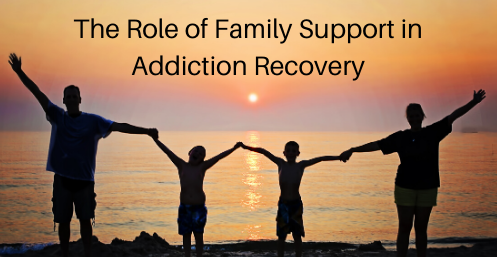Family support can play a key role in a person’s Recovery journey. When your loved one is battling addiction, they may feel a range of emotions, such as anger, fear and shame. While many feelings are often universal for those in Recovery, addiction to alcohol or drugs is an individual experience. This can make it difficult for family members to know how to offer support to a loved one who is going through Recovery.
Fortunately, at 7 Summit Pathways, we know how invaluable family support is during Recovery. If you are looking for ways to support your loved one, here is information and tips for offering the best possible family support.
Benefits of Family Involvement in Recovery
Why is family support so important for Recovery? When it comes to family and recovering from addiction, there are several benefits of family involvement. The benefits of family support in Recovery include:
- Communicating more effectively.
- Increasing your loved one’s self-esteem.
- Providing your loved one with healthy motivation.
- Helping resolve anger, stress, fear or confusion caused by addiction.
- Educating every participant on how addiction affects family members.
- Giving family members the tools to recognize and avoid codependent or enabling behaviors.
- Equipping family members and those in Recovery with the emotional tools needed to navigate sobriety.
How to Help a Loved One in Recovery
Family involvement in Recovery can offer several benefits to your loved one. What specific actions can you take to show your loved one that you are there for them? Here are some ways you can help and support your loved one in Recovery:
- Help your loved one build skills for coping: Stress is unavoidable, but by offering your support, your loved one can build coping skills for managing stress.
- Encourage complete abstinence from drugs and alcohol: Completely abstaining from drugs and alcohol is difficult for those in Recovery, especially when you feel like you are going through the process alone. Family involvement can help support long-term abstinence.
- Help your loved one follow their treatment recommendations: A comprehensive treatment plan can include multiple recommendations and services. With family involvement, your loved one may be more likely to follow the recommendations for their treatment.
- Encourage peer support group participation: Your loved one may be hesitant to join a peer support group, but with your involvement, they may be more likely to participate and find support from people who are experiencing the same challenges.
- Reduce family friction: Family support can reduce friction in close family relationships, which can help everyone feel better and help your loved one cope during the Recovery process.
Participate in Weekly Family Support Groups at 7 Summit Pathways
Are you looking for ways to support a loved one on their journey to Recovery? At 7 Summit Pathways, we offer weekly family support groups and other resources for family members. To learn more or speak with us directly, contact us today.

